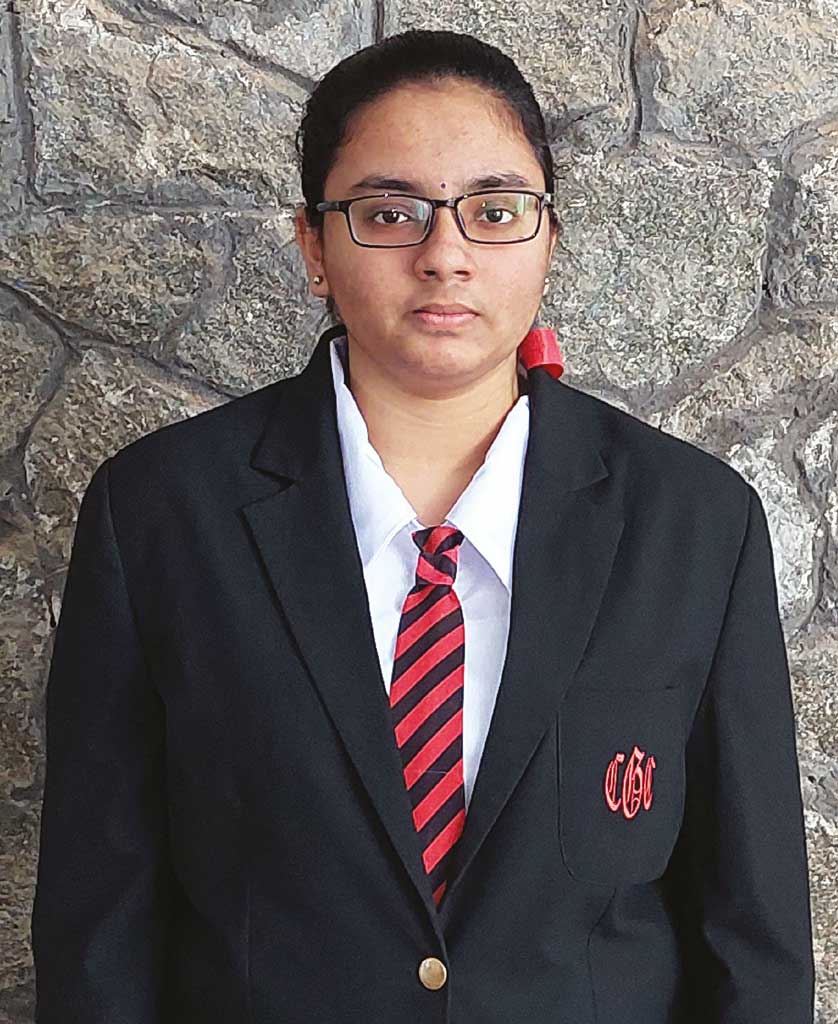YOUTH FORUM
SPOTLIGHT ON THE ECONOMY
Verlini Kumaravel ponders over the viral straw that broke the camel’s back
Compiled by Nicola Jayasundera
 Q: What’s ‘the good, the bad and the ugly’ of the state of the nation?
Q: What’s ‘the good, the bad and the ugly’ of the state of the nation?
A: What’s ‘good’ is the existence of diverse ethnic groups and their flourishing cultures, and the fact that they continue to follow their cultural traditions even today.
The ‘bad’ is that many people aren’t ready to accept this diversity. In the process of promoting one culture over the rest, the minorities are being oppressed.
And the ‘ugly’ is that even after 74 years of independence, we’re still unable to be united or accept people for who and what they are.
Q: And what do you consider to be the main challenges facing Sri Lanka today?
A: The most threatening challenge is the economic crisis; and it seems that the pandemic was the straw that broke the camel’s back and caused the economy to hit rock bottom.
The Sri Lankan Rupee has continued to lose ground against the US Dollar and the cost of living has soared drastically. Most people are suffering… except for a fortunate few.
 Q: Do you believe that Sri Lankans will be united one day – and if so, why? How can this be achieved?
Q: Do you believe that Sri Lankans will be united one day – and if so, why? How can this be achieved?
A: Sri Lanka can only be united if we abandon racism and view others as fellow human beings – and respect their identity as a right. The younger generation is practising respect and tolerance to some extent.
I hope Sri Lanka will be united one day. The current economic crisis is forcing us to revisit the country’s defective policies that have plunged our beautiful island into an abyss.
Q: Where do you see yourself in around 10 years’ time?
A: I am currently studying bioscience and hope to be a doctor someday.
Q: And where do you see Sri Lanka a decade from today?
A: In a decade from today, I see Sri Lanka as a rapidly developing country. There will be peace with justice and people will coexist as a nation that has overcome obstacles, and is self-sufficient and prosperous.
Q: Who is chiefly responsible for climate change and global warming? And what measures must be taken to address the prevailing situation?
A: Each and every one of us is responsible for climate change and global warming.
From the person who chooses to use plastic instead of a paper bag to a powerful nation that uses fossil fuels to produce electricity instead of more environmentally sustainable methods, all of us are responsible for this situation.
During the COVID-19 pandemic, we witnessed how nature heals itself. So all we have to do is control the actions that cause pollution. It’s not too hard to mitigate the damage we’ve caused to Mother Earth if we understand that we’re only one of the many species that live on this planet and don’t have special privileges over other living beings.
Q: How do you view the growing importance of social media today?
A: Social media allows us to reach others around the world. So I believe it’s an indispensable part of life, which is why it keeps growing in importance for users. Unfortunately, many people tend to lose a sense of their real lives in this virtual world.
Social media offers us only the things we like… because we pick like-minded people to be our friends when it comes to who befriends us and whom we follow.
The owners and operators of social media platforms have control over the content we see on our pages, and they manipulate the feeds in favour of those who matter to them.
But the real world is far more cruel and yet, also more loving or loveable – so we must learn to maintain a balance between a virtual society and reality since the latter is needed to sustain us in life.
Q: And where do you see the world in a decade from now?
A: In 10 years, I hope to see a world that is technologically developed; but I do wish that this technology will be more humane.
The global community would have overcome pollution; poverty; violence; corruption; exploitation; inequality between different genders, races, ethnicities and nations; and eliminated oppression and aggression.
I see a world that’s united – and people of all races, religions and gender being treated equally.




Leave a comment